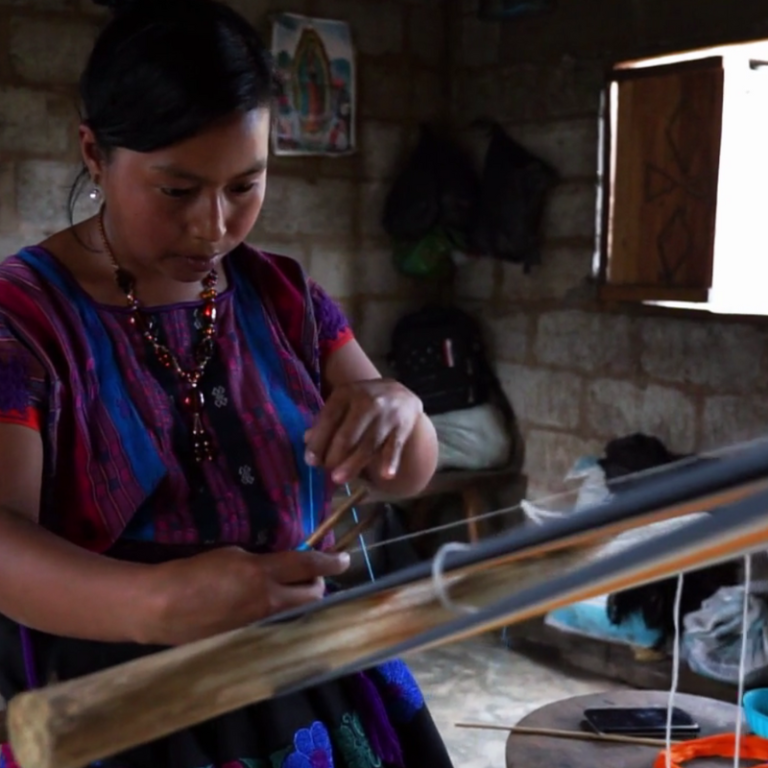
O2 Show has chosen to promote exclusively on ethically-made and sustainable brands. These terms have often been used interchangeably in fashion and retail, when referring to brands who care about the social and environmental impact of their products. There is plenty of crossover between them, they do work in a complimentary manner–social justice works in close relationship with environmental responsibility—and both of these terms generally refer to the product manufacturing and sourcing process.
But the definitions are not entirely the same. Here’s how they differ, and why we chose to focus on both:
Sustainable
Although the term ‘sustainable’ is often more associated with environmental impact, true sustainability actually encompasses social and economic justice, in addition to its focus on environmental impact. Truly sustainable brands consider all aspects of a product, from its sourcing, to manufacturing process, its distribution and consumption, as well as what happens to it at the end of the product lifecyle.
A sustainable brand will ensure that it sources materials that are fair-trade and ethically produced, whose impact on the environment is as small as possible. Then it would ensure that through the production process, workers are ethically treated. Post-production, the brand would also ensure that its packaging and distribution practices are eco-friendly and have the smallest possible environmental footprint.
Sustainable brands even consider their product’s environmental impact at the end of the product’s lifecycle, when it’s used up or no longer wanted by the consumer – can it be recycled or reused, how is it disposed of? Energy use, efficiency, carbon footprint, recycling, waste management – these are all important considerations for sustainability. The holy grail for a sustainable brand is to have zero carbon footprint.
Whereas ethical practices are more focused on social standards and qualitative measures, sustainable practices are often goal-oriented, highly measurable and more quantitative in nature.
Ethically-made
Ethical manufacturing and sourcing tends to business practices that adhere to certain social and and moral standards. When we talk about ethical production, it is linked to a certain set of moral and altruistic principles of right and wrong, as opposed to scientific goals or principles.
Ethical manufacturing is often associated with fair-trade practices: it concerns treatment of workers producing the products, ensuring that they are fairly compensated for their work, treated with dignity and respect, and that their rights and safety are protected. Likewise, ethical sourcing refers to the production of resources and raw materials, and it ensures that the people producing the raw materials are fairly paid for their work and treated with respect.

Connection between ethically-made and sustainable
There’s a certain amount of overlap between ethical manufacturing and sustainable: brands that practice ethical social responsibility are also concerned about their environmental impact. And brands that are pursuing true sustainability will also consider their social and economic impact, not just their environmental impact. Truly sustainable brands are also ethically made.
Sustainability is a measure on a continuum
We see sustainability as the ultimate goal for brands and products, to ensure the future survival of our planet and species. However, achieving true sustainability is often a process to be completed in multiple steps for many brands: of multiple adjustments and progressive movement towards the goal of zero impact. We understand that brands have to start somewhere, and deal with many factors that they may have limited control over, at first: given limited resources, price and time constraints, lack of information and full transparency in the sourcing of materials and labor practices. All brands can become more sustainable with adjustments.
Brands may start with ethical manufacturing and sourcing of environmentally friendly materials, then adjust their practices and sourcing of labor and materials for greater efficiency, less environmental, and more social impact, as they gather more information and refine product design.
Makers and craftspeople may already be ethically manufacturing and fully in control of their labor resources but may still have some work to do when it comes to materials sourcing, over which they may have limited control or information, and may still be adjusting other product design factors, such as packaging and distribution to be truly sustainable.

We believe that sustainability for companies is no longer an option, it’s good business. We want to support brands that practice ethical manufacturing and on their way towards achieving sustainability, as well as brands that are further along towards reaching their sustainability goals.
All brands we feature in our events and marketplace complete a brand declarations page. We also have information, resources, and experts available to help them continue their progress towards achieving full sustainability.
